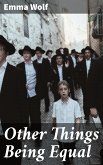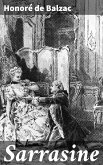In 'Superseded,' May Sinclair navigates the complexities of modern relationships and the shifting dynamics of identity in the early 20th century. With her hallmark stream-of-consciousness technique, Sinclair intertwines vivid character studies with a nuanced exploration of societal changes, particularly in the context of gender roles and the effects of war. The narrative delves into the lives of the protagonists, whose emotional struggles mirror the turbulence of the period, making it a rich text that reflects both personal and collective experiences of disillusionment and self-discovery. May Sinclair, a prominent figure in the feminist literary movement and a pioneering modernist, often drew inspiration from her own experiences as a woman navigating a male-dominated literary world. Her keen observations of psychological nuances and social intricacies stem from her engagement with contemporary philosophical and psychological theories, especially those of Sigmund Freud and William James. These influences resonate throughout 'Superseded,' illuminating Sinclair's sophisticated comprehension of human consciousness and interpersonal connections. This novel is highly recommended for readers seeking to immerse themselves in early modernist literature that deftly tackles themes of identity, gender, and societal metamorphosis. Sinclair's evocative prose invites readers to reflect on their own lives against the backdrop of a rapidly changing world, making 'Superseded' a pertinent exploration of timeless human dilemmas.
Dieser Download kann aus rechtlichen Gründen nur mit Rechnungsadresse in A, B, BG, CY, CZ, D, DK, EW, FIN, F, GR, H, IRL, I, LT, L, LR, M, NL, PL, P, R, S, SLO, SK ausgeliefert werden.









